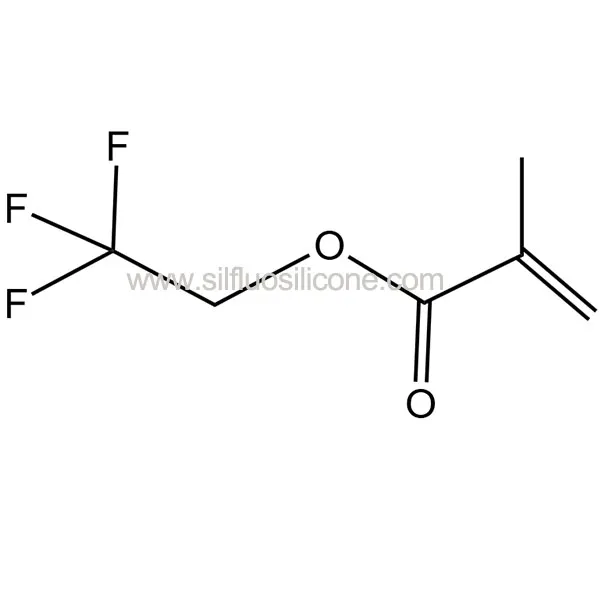
Products
Silanes & Siloxanes
Silicone Resin
Silicone Fluid
Silicone Rubber
Silicone Surfactant
Silicone Grease
Conformal Coating
Polysilazane
Organic Silicone Resin LR-021
Organic Silicone Resin LR-030
Organic Silicone Resin LR-031
Organic Silicone Resin LR-037
Organic Silicone Resin LR-038
Organic Silicone Resin LR-052
Organic Silicone Resin LR-121
Organic Silicone Resin LR-131
Organic Silicone Resin LR-152
Alcohol-soluble Silicone Resin LR-153
Organic Silicone Resin LR-160
High Activity Organic Silicone Resin LR-161
Organic Silicone Resin LR-162
Organic Silicone Resin LR-163
Solid Silicone Resin LR-240/241/242
Organic Silicone Resin LR-608
Silicone Resin Emulsion LR-E168
Silicone Resin Emulsion LR-E169
Silicone Resin Emulsion LR-E212
Silicone Resin Emulsion LR-EAP176
Silicone Resin Emulsion LR-EP167
High Temperature Silicone Resin LR-H160
High Temperature Self-drying Silicone Resin LR-H161
High Temperature Silicone Resin LR-H167
High Temperature Silicone Resin LR-H168
Organic Silicone Insulating Resin LR-L167
Epoxy Modified Silicone Resin LR-M123
Acrylic Modified Organic Silicone Resin LR-M124
Alkyd Modified Silicone Resin LR-M125
Polyester Modified Organic Silicone Resin LR-M161
Acrylic Modified Silicone Resin LR-M163
Epoxy-modified Silicone Resin LR-M164
Self-drying Silicone Resin LR-S161
Self-Drying Organic Silicone Resin LR-S164
Self-drying at Room Temperature Silicone Resin LR-S165/S165L
MQ Silicone Resin
LR-610 Spherical Silicone Resin; Polymethylsilsesquioxane
Silicone Resin Intermediate
Alkoxy Silicone Fluid
Hydrogen Silicone Oil
Silanol Sillicone Fluids & OH Polymer
Regular Silicone Fluid
Phenyl Silicone Fluid
Fluorosilicone Fluid
LA-10 A Modified Trisiloxane and an Silicone Surfactant
LA-11 A Modified Trisiloxane and an Silicone Surfactant
LA-12 A Modified Trisiloxane and an Silicone Surfactant
LA-13 An Alkyl Modified Trisiloxane
LA-14 A Modified Trisiloxane and a Silicone Surfactant
LA-15 A Modified Trisiloxane
LS-M11 Phenyltrimethoxysilane
LS-E11 Phenyltriethoxysilane (Donor A)
LS-M12 Diphenyldimethoxysilane
LS-E12 Diphenyldiethoxysilane
LS-M13 Dimethoxymethylphenylsilane
LS-M14 Methoxytriphenylsilane
LS-H12 Dihydroxydiphenylsilane
LS-H13 Triphenylsilanol; Hydroxytriphenylsilane
LS-52 1H,1H,2H,2H-Perfluorodecanethiol
LS-M531 3,3,3-Trifluoropropyl) Methyldimethoxysilane
LS-M53 3,3,3-Trifluoropropyltrimethoxysilane
LS-M59 1H,1H,2H,2H-Nonafluorohexyltrimethoxysilane
LS-E59 1H,1H,2H,2H-Nonafluorohexyltriethoxysilane
LS-M513 1H,1H,2H,2H-Perfluorooctyltrimethoxysilane
LS-E513 1H,1H,2H,2H-Perfluorooctyltriethoxysilane
LS-M517 1H,1H,2H,2H-Perfluorodecyltrimethoxysilane
LS-E517 1H,1H,2H,2H-Perfluorodecyltriethoxysilane
LS-51 2,2,2-Trifluoroethyl Methacrylate
LS-M512 Dodecafluoroheptylpropyltrimethoxysilane
LS-53C Perfluoropolyether Modified Acrylic Compound PFPE Modified Acrylic Compound
LS-653 Phenyl Siloxane
LS-P60 Phenyl Siloxane
LS-610/HMDO Hexamethyldisiloxane (MM, HMDO)
LS-611/HMDS Hexamethyldisilazane (HMDS)
LS-624/V4 Tetravinyltetramethylcyclotetrasiloxane (V4)
LS-623 1,3-Divinyl-1,1,3,3-tetramethyldisilazane
LS-622 Divinyltetramethyldisiloxane (Vinyl Double Head)
LS-612 1,1,3,3-Tetramethyldisiloxane (Hydrogen-Containing Double Head)
LS-613 1,1,3,3-Tetramethyl-1,3-Bis [3-(Oxiranylmethoxy)Propyl]-Disiloxane
LS-673 Heptamethyltrisiloxane
LS-614 Hexaphenyldisiloxane
LS-651 1,3,5-Tris [ (3,3,3-Trifluoropropyl) Methyl] Cyclotrisiloxane/D3F
LS-615 1,1,5,5-Tetramethyl-3,3-Diphenyl-Trisiloxane
LS-618 Octaphenylcyclotetrasiloxane
LS-644 Phenyl Siloxane
LS-6345 Phenyl Siloxane
Chloro Silane LS-8121
Silane LS-AH13
Silane LS-AM31
Alpha Silane LS-AM121
Silane LS-AS32
Silane LS-AS213
Silane LS-AS312
Silane LS-AS332
Silane LS-AT102
Silane LS-AT402
Benzylsilane LS-B632
Benzylsilane LS-B6032
Vinylbenzyl Amine-functional Silane LS-B6224
Pharmaceutical Intermediate LS-C11
AMS LS-C12
Cyano Silane LS-CHTS
Silane LS-CMMS
Silane LS-D312
LS-D322
Epoxy Silane LS-GLYDME
Phenyl Silane LS-M121
Silane LS-M304
Silane LS-MA131
Silane LS-MITS
Silane LS-MMOS
Silane LS-MVOS
Silane Polymer LS-O110
Octyl Silane Oligomer LS-OL310
Octyl Silane Oligomer LS-OL320
Silane Oligomer LS-OM112T
Silane Oligomer LS-OP121
Epoxy Silane Oligomer LS-OP200
Silane LS-OP594
Silane LS-PHIPS
Silane LS-PTCR
Silane LS-TMTED
Silane LS-VIPS
LS-C13 3,5-Dimethyl-N-(3-(Dimethoxymethysilyl)Propyl)-1H-Pyrazole-1-Carboxamide
LS-GCF 1,1,3,3-Tetramethyl-2-[3-(Trimethoxysilyl)Propyl]Guanidine
LS-PEG10 3-(Methoxypolyoxyethylene) Trimethoxysilane
LS-PEG20 3-[Methoxy(Polyethyleneoxy)-Propyl]Trimethoxysilane
Methyl Vinyl MQ silicone Resin LR-MQV
LR-MQ Methyl MQ Silicone Resin
LR-MQP Vinyl phenyl Silicone M/Q Resin
LR-MQPH Phenyl Hydrogen Silicone Resin
Silicone MQ Resin LR-TMS
Methyl Hydrogen Polysiloxane Emulsion LF-EH101
High Hydrogen Silicone Fluid LF-H101H
Low Hydrogen Silicone Fluid LF-H101L
Side-H Silicone Oil LF-H101S
Terminal-H Silicone Oil LF-H101T
Terminal & Side-H Silicone Oil LF-H101TS
Silanol Terminated Polydimethylsiloxane LF-OHP
Diphenyl Hydroxy Silicone Oil LF-OHP2
Phenyl Methyl Hydroxy Silicone Oil LF-OHPM
Vinyl Hydroxy Silicone Oil LF-OHPV
Economic Fumed Silicone Rubber For Extrusion
Flame Retardant Silicone Rubber
Food Contact Silicone Rubber For Molding
General Silicone Rubber For Extrusion
High Rebound Silicone Rubber
Modified Silicone Rubber For Extrusion
Addition Curing Silicone Rubber
Antistatic Silicone Rubber
Ceramic Silicone Rubber
Common Silicone Rubber For Extrusion (Precipitated Silica Grade)
Common Silicone Rubber For Molding (Precipitated Silica Grade)
Economic Fumed Silicone Rubber For Molding
Economic Silicone Rubber For Extrusion
Economic Silicone Rubber For Molding
Electrical Insulating Silicone Rubber
General Purpose Fumed Silicone Rubber For Molding & Extrusion
General Silicone Rubber For Molding
High Strength Silicone Rubber For Molding
High Temperature Resistant Silicone Rubber
High Transparency Fumed Silicone Rubber
Modified Silicone Rubber For Molding
Self Lubricating Silicone Rubber
Silicone Rubber For Cable Accessories
Standard Fumed Silicone Rubber For Extrusion
Standard Fumed Silicone Rubber For Molding
Standard High Tear Strength Fumed Silicone Rubber For Extrusion
Standard Silicone Rubber For Extrusion
Standard Silicone Rubber For Molding
Ultra Low Hardness Silicone Rubber
Economic High Tear Strength Fumed Silicone Rubber For Molding
LR-F5100 Fluoro Silicone Gum
LR-F5200 High Tear Strength Series Fluorosilicone Rubber
LR-F5300 Low Pressure Deformation Fluorosilicone Compound
LR-F5400 High Resilience Series Fluorosilicone Rubber
LR-F5500 Adhesive Purpose Series Fluorosilicone Rubber
LR-F5502 Adhesive Purpose Series Fluorosilicone Rubber
LR-F5600 Flame-retarded Series Fluorosilicone Rubber
LR-F5700 Extruded Fluorosilicone Rubber

